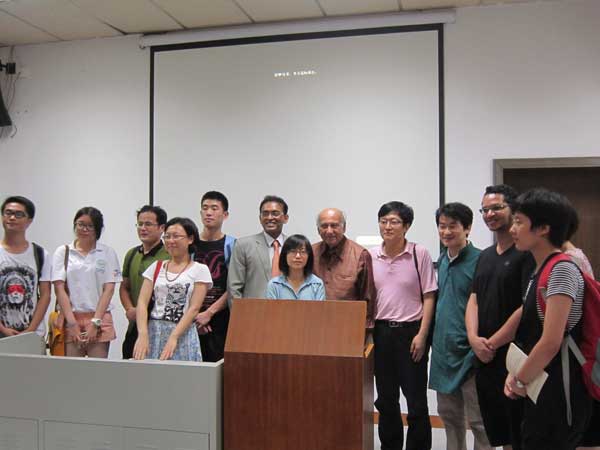

 |
|
Universities in China have shown great interest in jointly setting up the Center for Gandhian Studies to spread Gandhi's message. |
Spreading Gandhi's message has become a labor of love. After his retirement from the Indian foreign service in 1994, Nazareth has been a guest lecturer around the world. In 1995, he became a founder and managing trustee of Sarvodaya International Trust, which is dedicated to promoting Gandhi's ideals of truth, nonviolence, communal harmony, humanitarian service and peace.
"As a young officer in the foreign service, I had proudly proclaimed at all my foreign posts that religious tolerance was India's gift to the world," he says.
"In the latter part of my career, I was horrified by the worst types of religious animosities which had spawned in India. Fanned by rabid communal outfits closely connected to one of our then-minor political parties, this strategy was paying handsome dividends. Within 10 years of the destruction by them of a historic mosque in December 1992, this political party's parliamentary strength skyrocketed from just four seats in 1984 to 170 by 1998."
After the Bharatiya Janata Party came to power that year, communal clashes and massacres occurred in various parts of India, he says. He decided to do all he could to revive and promote Gandhi's enlightened approach to inter-religious understanding and communal harmony.
"An old aunt had told me many years ago that it always better to light a candle than curse the darkness!"
Noting that China and India both endured colonial rule, Nazareth says Gandhi was always "full of sympathy" towards China.